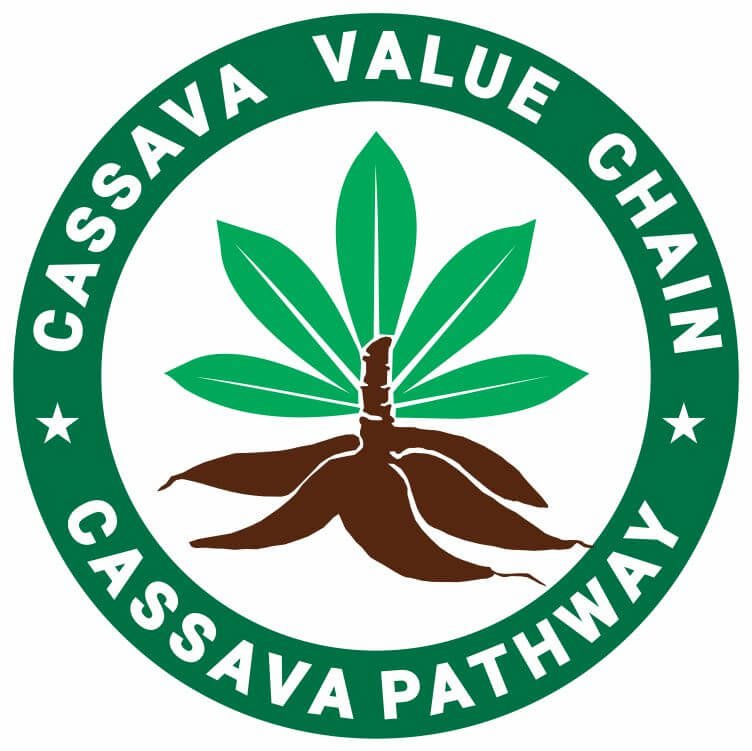Is cassava and pregnancy compatible? Check out the benefits, risks, and essential recommendations for consuming cassava during pregnancy and how cassava benefits pregnancy.
When considering its nutritional profile, cassava is most notably recognized for its high carbohydrate content.
When it comes to cassava and pregnancy, understanding its impact is important.
While cassava provides important nutrients, it also carries potential risks that pregnant women should be aware of.
In this guide, we’ll discuss the benefits of cassava during pregnancy, outline potential risks, and offer recommendations for safe consumption to ensure a healthy pregnancy journey.

An Overview of the Nutritional Value of Cassava
Vitamin-wise, cassava is rich in Vitamin C, an essential nutrient known for its antioxidant properties.
Vitamin C helps boost the immune system, aids in the absorption of iron, and plays a crucial role in tissue repair and collagen formation, making a healthy for pregnancy.
In addition to Vitamin C, cassava also contains small amounts of other vitamins, such as thiamin, riboflavin, and niacin, which contribute to overall metabolic health.
The mineral content in cassava includes significant amounts of calcium and potassium.
Calcium is vital for maintaining strong bones and teeth, crucial for pregnant women as it supports both their own and their baby’s bone health.
Potassium plays an essential role in regulating fluid balance, muscle contractions, and nerve signals, contributing to cardiovascular health.
Is Cassava Good for Pregnancy?

Cassava can be beneficial during pregnancy, but it must be consumed in moderation and prepared properly.
As explained above, it is rich in carbohydrates, providing essential energy for expecting mothers, and contains key nutrients like folate, which supports fetal development.
Additionally, cassava is a good source of fiber, aiding digestion and preventing constipation, a common pregnancy concern.
However, caution is necessary when consuming cassava, especially bitter varieties, as they contain naturally occurring cyanogenic glycosides that can be harmful if not properly processed.
Ensure cassava is thoroughly peeled, soaked, and cooked to reduce potential risks.
Pregnant women should also consult their healthcare provider before adding cassava to their diet, especially if they have underlying health conditions.
Below are some of the benefits of cassava and why it is good for pregnancy.
Related Posts
Is Cassava Good for High Blood Pressure?
Paleo Diet: Is Cassava Paleo-Compliant?
Benefits of Cassava Roots During Pregnancy (How Cassava Benefits Pregnancy)
During pregnancy, the body should be supplied with a steady and healthy source of energy.
Cassava, with its high carbohydrate content, is an excellent source of this needed energy, supporting the increased metabolic demands of a pregnant woman.
The slow-digesting carbohydrates in cassava provide sustained energy, helping to manage fatigue and ensuring that both mother and baby receive the nutrients they need.
Provides Steady Energy
Cassava is rich in complex carbohydrates, giving you energy that lasts throughout the day.
Unlike sugary snacks that spike your blood sugar, cassava releases fuel slowly, helping you stay active, focused, and less prone to fatigue during pregnancy, when your body constantly works to support both you and your baby.
Dietary Fiber for Pregnancy
One way cassava benefits pregnancy is its dietary fiber content, which promotes healthy digestion and aids in preventing constipation, a common discomfort during pregnancy.
The inclusion of fiber-rich foods like cassava in the diet can facilitate smoother digestive processes, ensuring nutrient absorption and regular bowel movements for the expectant mother.
Gluten-Free and Hypoallergenic
Cassava is naturally free from gluten, making it a safe choice if you have sensitivities or celiac disease.
Its gentle, hypoallergenic nature means you can enjoy it without worrying about triggering digestive discomfort or allergic reactions during pregnancy.
Folate in Pregnancy
Equally important are the vital nutrients found in cassava. Folate, a form of vitamin B, is one such nutrient crucial for fetal neural development.
Adequate folate intake is linked to a decreased risk of neural tube defects, highlighting its significance for pregnant women.
Cassava is also a source of calcium and magnesium, essential for maintaining bone health.
These minerals support the fetus’s skeletal development and help reduce leg cramps and preeclampsia in pregnant women.
You might want to read the detailed post on the benefits of cassava root.
Scientific Studies of Cassava and Pregnancy
Scientific studies corroborate how cassava benefits pregnancy. Research published in the Journal of Gynecology and Obstetrics underscores the positive impacts of dietary fiber in preventing constipation during pregnancy.
Another study in the American Journal of Clinical Nutrition highlights the importance of folate in reducing congenital disabilities.
Moreover, minerals like calcium and magnesium found in cassava have been shown to improve maternal health outcomes.
Incorporating cassava into a balanced diet can thus provide multiple benefits for pregnant women, making it a valuable inclusion for those seeking to support their health and that of their developing baby.
Risks and Precautions When Consuming Cassava During Pregnancy

Of course, cassava comes with risks that need attention, especially during pregnancy.
One obvious concern is the presence of naturally occurring cyanogenic glycosides in raw cassava, and that is why it is advised not to eat it raw.
These compounds can release cyanide, a potent toxin, when the cassava is improperly prepared or consumed in large quantities.
Cyanide poisoning is particularly dangerous during pregnancy as it can adversely affect both the mother and the developing fetus.
The best way around this is to safely incorporate cassava into a pregnancy diet, which is through proper preparation.
Peeling and washing the cassava roots properly is the first important step.
Subsequent processes can reduce cyanide levels, such as soaking them in water for the poisons to leach out and then cooking them thoroughly by boiling or baking.
Fermentation is another method that can help break down these toxic compounds.
Precautions with Cassava and Pregnancy
While the interaction of cassava and pregnancy can be cordial, precautions and moderation are important.
Overconsumption of cassava can overwhelm the body’s ability to detoxify cyanide, leading to potential health risks.
Pregnant women should not rely on cassava as a primary dietary staple but rather as an occasional component of a varied diet to ensure safety.
Beyond the risks associated with cyanide, it is also important to consider potential allergies or intolerances.
While relatively rare, some pregnant women may have sensitivities to cassava.
Typical symptoms of an allergic reaction include itching, swelling, and gastrointestinal issues like nausea or diarrhea.
Pregnant women who experience these symptoms should cease consumption and consult a healthcare provider to evaluate any potential allergies or intolerances.
A vigilant approach to cassava consumption during pregnancy, hinged on proper preparation and mindful moderation, can effectively mitigate risks while allowing pregnant women to enjoy the nutritional benefits this root vegetable offers.
Recommendations for Pregnant Women and Cassava
For pregnant women considering the inclusion of cassava in their diet, certain guidelines can help ensure safe and beneficial consumption.
It is important to take into account the preparation method, portion sizes, and overall dietary balance to optimize the benefits while mitigating potential risks.
Firstly, when consuming cassava, prioritize proper preparation to eliminate naturally occurring cyanogenic glucosides.
Boiling, steaming, or baking cassava can effectively reduce these compounds, while methods like frying should be limited due to the additional fat content.
Aim for moderate portions, around half a cup to one cup of cooked cassava per serving, to prevent overconsumption.
Combining cassava with other nutrient-dense foods is vital for creating a balanced diet.
Pairing it with lean proteins such as chicken, fish, or legumes, along with vegetables high in fiber and vitamins, can ensure a comprehensive nutritional profile.
Foods like spinach, carrots, and bell peppers provide essential vitamins like A and C, complementing the carbohydrates and potassium found in cassava.
Consulting a healthcare provider or a nutritionist is highly recommended before making any significant dietary changes, especially during pregnancy.
These professionals can provide personalized advice based on individual health needs and dietary restrictions, ensuring the safe inclusion of cassava into the diet.
Balancing dietary choices with the guidance of healthcare professionals can help pregnant women maintain optimal health.
Whether through the cautious inclusion of cassava or other nutrient-rich alternatives, focusing on a well-rounded diet is key during pregnancy.
Conclusion
Yes! Cassava benefits pregnancy. Cassava and pregnancy are not enemies when guidelines are followed. Cassava can be a nutritious addition to a pregnancy diet, offering essential vitamins, fiber, and folate.
However, it’s important to prepare cassava properly to avoid cyanide toxicity and consume it in moderation.
Combining cassava with other nutrient-rich foods and consulting a healthcare provider ensures a balanced and safe diet for both mother and baby.
By following these guidelines, pregnant women can enjoy the benefits of cassava while minimizing potential risks.
Frequently Asked Questions on How Cassava Benefits Pregnancy
Is tapioca good for pregnancy in the first trimester?
Tapioca can be consumed in moderation during pregnancy. It provides energy from carbs, but ensure it’s balanced with other nutrients for a healthy diet.
Does cassava benefit pregnancy?
Cassava contains vitamins and minerals, but it should be consumed carefully during pregnancy as improper preparation may lead to cyanide toxicity, especially in its raw form.
Is cassava good for babies?
Cassava can be safe for babies when cooked properly. It’s a source of carbs but lacks significant protein and essential nutrients needed for growth.

Chimeremeze Emeh is a writer and researcher passionate about Africa’s most transformative root crop—cassava. Through his work at cassavavaluechain.com, he explores the entire cassava industry, from cultivation and processing to its diverse applications in food, health, and industrial use.
He also writes for palmoilpalm.com, where he shares his extensive experience and deep-rooted knowledge of palm oil, covering red palm oil, palm kernel oil, and refined products. His work there reflects his lifelong connection to agriculture and his commitment to promoting sustainable value chains in Africa.
Driven by curiosity and purpose, Chimeremeze aims to shed light on how cassava continues to empower communities, strengthen food systems, and link traditional farming wisdom with modern innovation.

